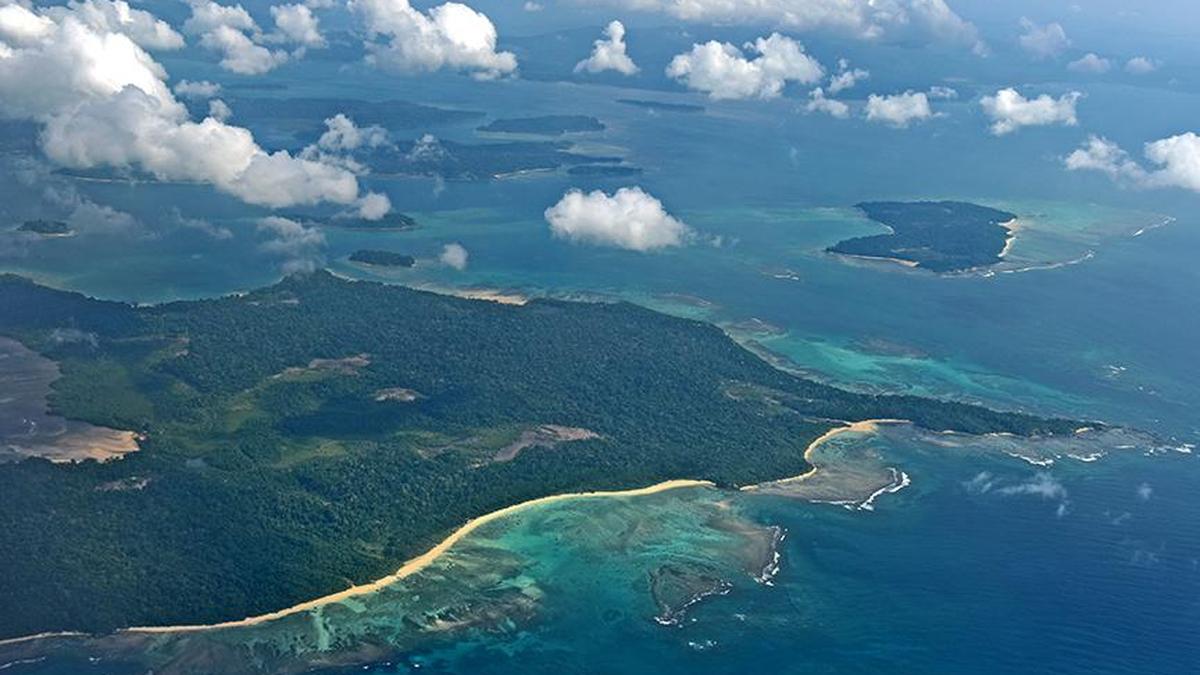Technology
Great Nicobar Island Project: over 70 experts, scientists write to Environment Minister on ‘grave’, irreversible’ impact
More than 70 scholars, former bureaucrats, activists, lawyers, and environmentalists on Monday (October 27, 2025) wrote an open letter responding to Environment Minister Bhupender Yadav’s defence of the proposed ₹92,000-crore Great Nicobar Island mega-infrastructure project, urging the Minister to “set aside political considerations” and focus on the project’s “grave and irreversible negative implications”.
The letter, made public on Monday and sent to Mr. Yadav’s office as well, was in response to the Environment Minister’s article in The Hindu last month, in which he defended the project that involves the construction of a trans-shipment port, an international airport, a township, and a power plant on more than 160 sq. km of land.
This includes around 130 sq. km of pristine forest inhabited by the Nicobarese, a Scheduled Tribe (ST), and the Shompens, a Particularly Vulnerable Tribal Group (PVTG) whose population is estimated to be between 200 and 300.
The Environment Minister’s piece had come days after senior Congress leader Sonia Gandhi had written a piece criticising the way clearances for the project had been obtained and cautioning the government on its potential impact on the islands’ biodiversity and indigenous populations.
Responding to Mr. Yadav’s piece, the open letter argued that it was “disingenuous” to “invoke national security” and label the project as a “strategic one” whenever questions are raised about it. The signatories said that Mr. Yadav’s figure of just 1.82% of the islands’ forests being used for the project was “mathematically accurate but ecologically misleading”, arguing that this figure was calculated keeping in mind the forest areas under all of the Andaman and Nicobar Islands archipelago, when in fact, the project area would take about 15% of the Nicobar Islands archipelago, which is different from the forests in the Andamans Islands.
“The only component of the proposed project that was made defence-related, and that too after the public hearing, is the dual-use military-cum-civilian airport,” the letter said, adding that, “The greenfield township, a commercial project, covers more than 80% of the total project area, excluding the defence township of 12.6 sq kilometres.”
The signatories include historian Ramachandra Guha, wildlife conservationist Romulus Whitaker, wildlife biologist Ravi Chellam, nature conservationist Asad Rahmani, scientist Sharachchandra Lele, and former Gujarat Principal Chief Conservator of Forests Ashok Kumar Sharma, among others.
The experts went on to refute the Minister’s assertion that laws and procedures meant to protect the rights of Scheduled Tribes had been respected and followed, saying this was “far from true”. “The rights accorded to the indigenous communities under the Forest Rights Act have been violated. Even the provisions under the ANPAT Regulation (1956) and the Shompen Policy (2015) have been wholly ignored in the rush to grant clearances.”
The signatories alleged that the Environmental Appraisal Committee ignored anthropological and ecological objections and that “Galathea wildlife sanctuary was denotified, and three new sanctuaries were notified without any consultation with the Great and Little Nicobar islanders”.
The Calcutta High Court is currently hearing a batch of petitions that have challenged the forest clearances obtained for the project, and the National Green Tribunal is hearing a matter that deals with the environmental clearances accorded to it.
Moreover, the forests of Great Nicobar are “our country’s last remaining old-growth forest” and “the only home to approximately 24 per cent of all species found there”, the letter said, further raising questions about its potential economic viability, which was yet to be demonstrated.
More than 70 scholars, former bureaucrats, activists, lawyers, and environmentalists on Monday (October 27, 2025) wrote an open letter responding to Environment Minister Bhupender Yadav’s defence of the proposed ₹92,000-crore Great Nicobar Island mega-infrastructure project, urging the Minister to “set aside political considerations” and focus on the project’s “grave and irreversible negative implications”.
The letter, made public on Monday and sent to Mr. Yadav’s office as well, was in response to the Environment Minister’s article in The Hindu last month, in which he defended the project that involves the construction of a trans-shipment port, an international airport, a township, and a power plant on more than 160 sq. km of land.
This includes around 130 sq. km of pristine forest inhabited by the Nicobarese, a Scheduled Tribe (ST), and the Shompens, a Particularly Vulnerable Tribal Group (PVTG) whose population is estimated to be between 200 and 300.
The Environment Minister’s piece had come days after senior Congress leader Sonia Gandhi had written a piece criticising the way clearances for the project had been obtained and cautioning the government on its potential impact on the islands’ biodiversity and indigenous populations.
Responding to Mr. Yadav’s piece, the open letter argued that it was “disingenuous” to “invoke national security” and label the project as a “strategic one” whenever questions are raised about it. The signatories said that Mr. Yadav’s figure of just 1.82% of the islands’ forests being used for the project was “mathematically accurate but ecologically misleading”, arguing that this figure was calculated keeping in mind the forest areas under all of the Andaman and Nicobar Islands archipelago, when in fact, the project area would take about 15% of the Nicobar Islands archipelago, which is different from the forests in the Andamans Islands.
“The only component of the proposed project that was made defence-related, and that too after the public hearing, is the dual-use military-cum-civilian airport,” the letter said, adding that, “The greenfield township, a commercial project, covers more than 80% of the total project area, excluding the defence township of 12.6 sq kilometres.”
The signatories include historian Ramachandra Guha, wildlife conservationist Romulus Whitaker, wildlife biologist Ravi Chellam, nature conservationist Asad Rahmani, scientist Sharachchandra Lele, and former Gujarat Principal Chief Conservator of Forests Ashok Kumar Sharma, among others.
The experts went on to refute the Minister’s assertion that laws and procedures meant to protect the rights of Scheduled Tribes had been respected and followed, saying this was “far from true”. “The rights accorded to the indigenous communities under the Forest Rights Act have been violated. Even the provisions under the ANPAT Regulation (1956) and the Shompen Policy (2015) have been wholly ignored in the rush to grant clearances.”
The signatories alleged that the Environmental Appraisal Committee ignored anthropological and ecological objections and that “Galathea wildlife sanctuary was denotified, and three new sanctuaries were notified without any consultation with the Great and Little Nicobar islanders”.
The Calcutta High Court is currently hearing a batch of petitions that have challenged the forest clearances obtained for the project, and the National Green Tribunal is hearing a matter that deals with the environmental clearances accorded to it.
Moreover, the forests of Great Nicobar are “our country’s last remaining old-growth forest” and “the only home to approximately 24 per cent of all species found there”, the letter said, further raising questions about its potential economic viability, which was yet to be demonstrated.



